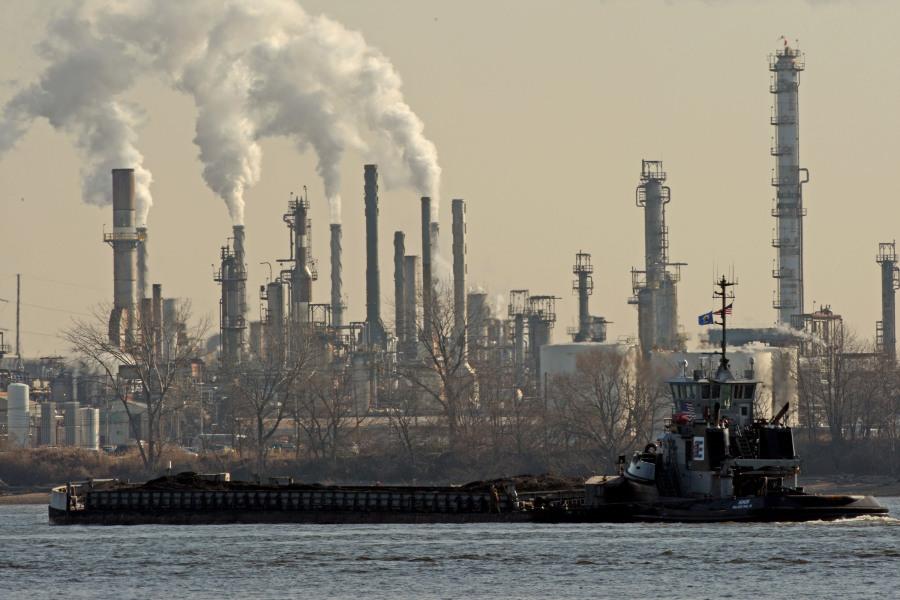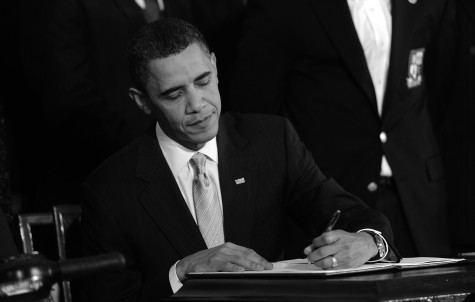World leaves size-12 carbon footprint
Michael Bryan/MCT
Ozone, the chief component of smog, is a by-product of emissions from automobiles, power plants and oil refineries such as this refinery, on the Delaware River.
In a monumental decision on Nov. 12, the world’s two largest economic superpowers came to an agreement to prevent further environmental degradation due to carbon emissions. In this agreement, Chinese president Xi Jinping has pledged to cap carbon emissions by the year 2030, and President Barack Obama has pledged to cut carbon emissions 26-28 percent by 2025. Together, these two countries are responsible for 45 percent of the world’s total carbon emissions. This groundbreaking commitment could prove to be a massive step forward in the fight on climate change.
This agreement has been receiving major criticism, particularly from the right, because China is allowed to continue to let carbon emissions grow while the United States has to cut them. While this may seem unfair, China’s economy is in a much earlier state of development than ours, and according to the World Bank, it has grow almost four times the rate of ours since 2010. It is in a much earlier stage of development and relies heavily on non-renewable resources. Coal alone provides 80 percent of the country’s electricity. It would not be feasible to entirely cut, or even reduce, carbon emission as the United States is doing, without completely turning the Chinese economy on its head. Before completely halting its carbon emissions, China must first move away from an almost solely non-renewable, resource-based economy.
In the past, these two countries have been on the opposite side of the spectrum in the climate change debate. While China believed that richer, more developed countries should take the lead on cutting carbon emissions, the United States believed that developing countries should take the lead because they are more reliant on fossil fuels. By committing to take action, this will inspire other countries, developed and developing, to follow suit. Now that the two largest economic powers are cooperating, there is massive potential for ground-breaking policy to be drafted and implemented at the upcoming United Nations Climate Change Conference.
While this agreement will not come close to solving the climate change issue, it is a step forward. It paves the way for future, more drastic measures to be taken. In the following days after the agreement, Republicans, led by Senator Mitch McConnell, have harshly criticized the “one-sided” agreement and hinting at reneging on it. Not only would this have disastrous effects on the future of the battle on climate change, but it would also result in an unnecessary, and possibly detrimental, political schism with our largest economic trading partner. The agreement may not be perfect, but we, the American people, must stand by and support it.







